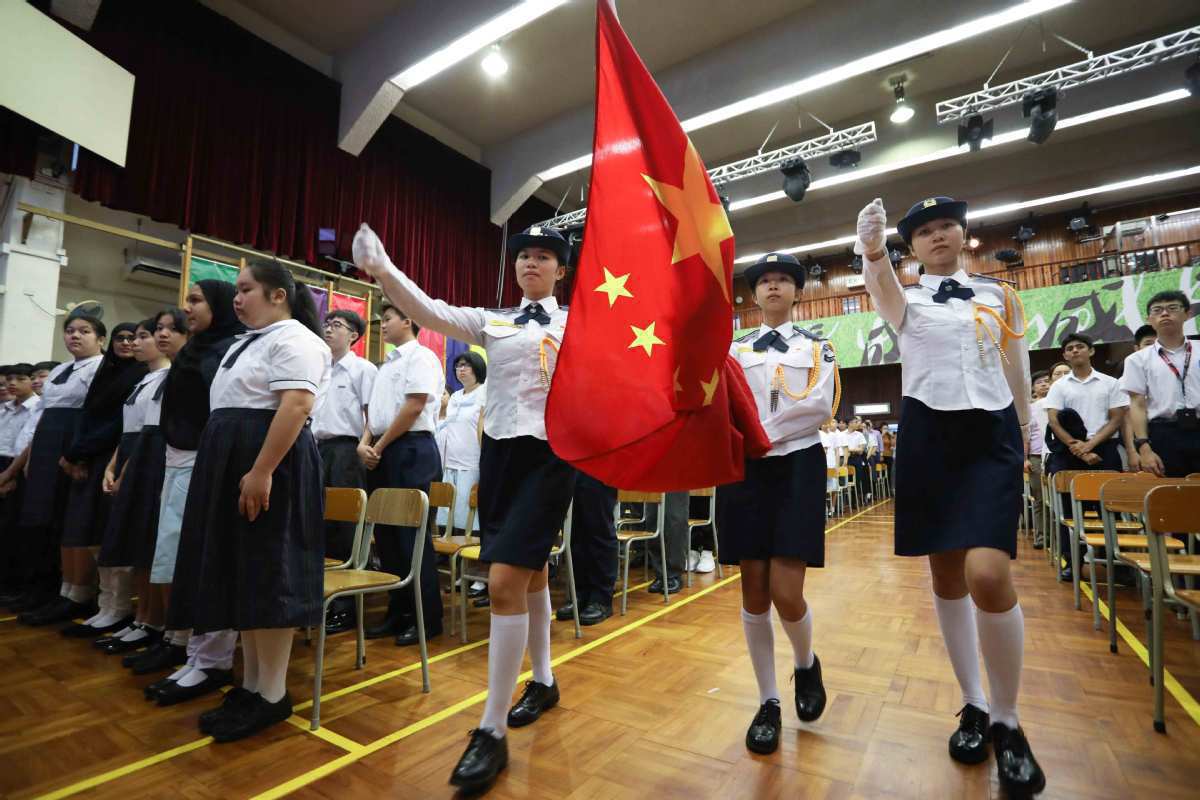People-to-people exchanges remain essential for HK


International educators will be deeply saddened by the events on campuses of Hong Kong's highly regarded universities, leading to early closure of the fall term and international students returning home early. Disruption to transport and safety issues have been so pervasive that schools are to remain closed through the end of Monday, at least. However, no matter what university campuses will not re-open for studies or examinations this year.
It is fortunate there are only two weeks left of the university semester, to use an American term, as such events a month earlier would raise questions of academic integrity for study abroad students and the transfer of credits. This time a workaround of completing studies online and submitting papers electronically should be acceptable. But the reality is that foreign universities would have called back their students in any such circumstances, and some in Europe and the US already had.
Parents send students to college in the US, but colleges send students on study abroad - thus health, safety and liability are top priorities for home universities, their partners and hosts. Students being on an inflamed campus with police confronting rioting protestors, who have armed themselves on-site, is a very high-risk situation.
We all hope for a swift end to the chaos, and the next semester seems a ways off. But foreign universities have to make decisions now about recommending students to go on a particular spring semester abroad, and many have already suspended participation for the first part of 2020 at Hong Kong universities. These students need to make alternative plans soon.
So sadly these famous institutions in Hong Kong will see a dearth of foreign students at a time when it remains important to encourage people-to-people exchanges so understanding of others and avoidance of "fake news" can be achieved. Many Western media outlets’ reports on Hong Kong have shown a biased, agenda-driven approach distorting reality for viewers. Some Western media platforms cut video of a rioter attempting to take a Hong Kong police officer's gun while that officer was grappling with another offender. This showed the resulting shooting but cut out the crucial footage of the attempt to grab the officer's gun, a shameful piece of “journalism”.
The misrepresentation of Hong Kong in recent months and China in general over many years in Western media is well-understood by foreigners who visit China and see for themselves. My students from programs in Nanjing, Beijing and Shanghai over more than a decade have consistently said the China they are seeing is very different from the picture painted in the US – that picture paints China as more underdeveloped, less safe and less friendly than what they see in their host cities.
It is understood that Western democratic nations have a natural tendency to support "pro-democracy" sentiment, but as far as I remember from my Political Thought course at LSE long ago, my classmates and professor agreed that democracy has a variety of meanings. They certainly did not define it as "the tyranny of the minority over the majority", which describes affairs in Hong Kong right now pretty well.
While not seeking to interfere in the domestic affairs of China, Western leaders should clearly condemn lawlessness and recognize there is a difference between free speech and freedom of action to break the laws of society with impunity. Even freedom of speech is being denied to those that hold opposing views to pro-democracy protestors. Again, the dousing of a man with a flammable liquid and setting him on fire for daring to speak out against the protestors is a violation of freedom of speech and attempted murder, which deserved foreign media headlines more clearly than misrepresentations of police actions.
The Hong Kong police have been remarkably restrained in their responses to the violence and the Hong Kong authorities have consistently called for dialogue, which is the democratic way and demonstrably the China way for disputes in recent years. In May of 1970, Kent State University in the US witnessed student protests on campus against the Vietnam War — a more reasonable cause — but National Guard troops were called out, resulting in the death of four students and injuries to nine more. In 1973 in Greece, the transitional government sent a tank crashing through the gates of Athens Polytechnic and shortly after martial law was imposed as student protestors took to the streets, with some killed or injured.
As recently as last Friday, US Secretary of State Mike Pompeo, spoke out with misinformation about Hong Kong and Chinese mainland’s implementation of the “one country, two systems” policy at Rice University’s Baker Institute for Public Policy. This had the effect of continuing to lend support to pro-democracy protestors in HK regardless of criminal activity, which some members of that movement have now resorted to. However, the world is watching and, despite some distorted reporting, can see the escalating violence and drift into lawlessness. If Western leaders are not seen unreservedly to condemn it, this can only embolden protestors in their own backyards — with serious consequences when the next set of protests starts in the West.
Colin Speakman is an economist and an international educator with CAPA: The Global Education Network, a US–based organization that cooperates with East China Normal University in Shanghai and the Chinese University of Hong Kong.

































